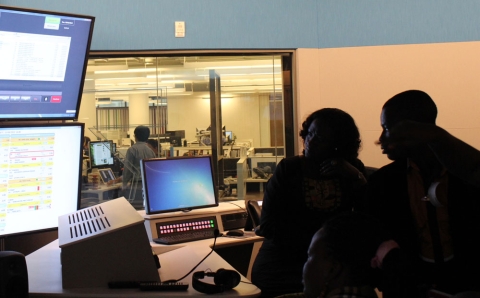
It’s a major problem currently facing journalism schools around the United States—and the International Center for Journalists (ICFJ) has teamed up with the John S. And James L. Knight Foundation to fix it with the Back in the Newsroom Fellowship Program.
The fellowships will place U.S.-based professors in high-tech newsrooms for summer “internships” to bring their digital skills up to speed.
The program is a means “to keep the professors on the cutting edge of what’s really going on and what the needs are in the newsroom and the technology that’s new in the newsroom, ” ICFJ president Joyce Barnathan told Nieman Journalism Lab at Harvard in a recent interview. “What they see and what they learn gets transferred into a new and better curriculum.”